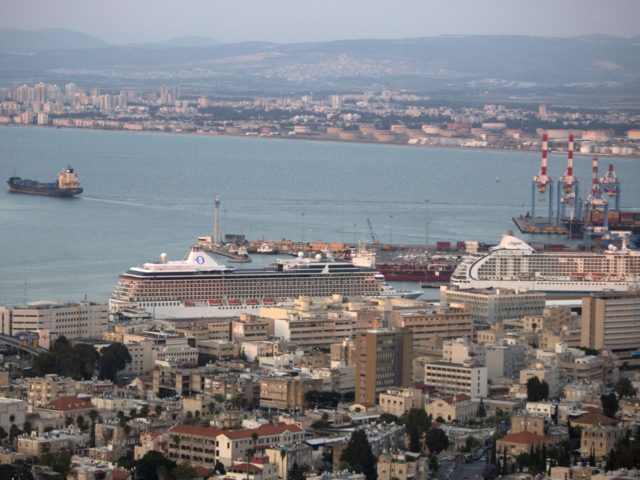TEL AVIV – Prime Minister Benjamin Netanyahu is still deliberating what to do about regulating foreign investments in Israel amid concerns on the part of U.S. and Israeli security forces over the alarming pace of Chinese investments in Israeli infrastructure.
Israeli lawmakers estimate that Chinese corporations have invested in projects or acquired assets in Israel worth nearly $15 billion, the Jerusalem Report documented in a recent analysis.
The Shin Bet security agency, the National Security Council (NSC) and U.S. administrations past and present have repeatedly expressed security concerns over Chinese investments, the report said, but government security cabinet ministers have so far failed to curb the trend.
Last month, the Israel Electric Corporation sold the Alon Tabor power station, which accounts for 2% of Israel’s total electricity production, to a consortium of two Israeli firms and a Chinese company.
Known as China Harbor, the consortium won the tender with a $500 million bid, double its estimated value. According to the report, the overpriced deal is typical of Chinese corporations, which are heavily controlled by the Communist government.
According to the report:
It is part of laborious efforts by the Chinese government to purchase, invest and control strategic assets in a wide range of infrastructures — seaports, railroads, trains, airlines, energy, power stations, oil and other minerals — in many parts of the world including the Middle East and Israel. A report prepared by the Military Intelligence Directorate shows that Chinese investment in the Middle East since 2012 grew by 1,700%, totaling $800 billion in civilian and military sectors.
Among the Chinese tender acquisitions in recent years are Tnuva, Israel’s largest dairy producer, the Carmel tunnels, the Ashdod and Haifa seaports, and Tel Aviv’s light rail.
In a stunning development, the government-owned CRRC, China’s largest company in the infrastructure field, will supply rail cars and communications equipment for Tel Aviv’s rail “red” line along with a few smaller Chinese companies. But CRRC also supplies cars for the subways in four Iranian cities, including the capital, Tehran, in complete contravention of Israeli law preventing any foreign company doing business in Iran from operating in Israel.
The Israeli security establishment is fearful that the the deal will expose Israel to major security threats — especially in light of the fact that the red line passes sensitive security facilities, including the Defense Ministry, the IDF headquarters and the head offices of the Shin Bet in Tel Aviv. Israel’s ability to prevent bugging devices being planted near those places is very limited, the report said.
The Shin Bet has exposed multiple attempts by Chinese intelligence to wage cyber warfare against top Israeli military, security and civilian companies, including Israel Aerospace Industries, Elbit and Rafael, all of which have partnerships with American companies.
“The issue of supervising foreign investments in Israel with aspects referring to national security was discussed a few times in the cabinet following a comprehensive study led by the National Security council,” a senior government source told The Jerusalem Report.
“At the heart of the issue is the required balance between economic interests, the desire to maintain a free market, and encouraging investment and national security interests,” he said. “The ministers were presented with reports about the practices adopted in other Western nations. The ministers asked for more information and alternatives suitable for Israel. A final and concluding session will take place in the next few months.”

COMMENTS
Please let us know if you're having issues with commenting.